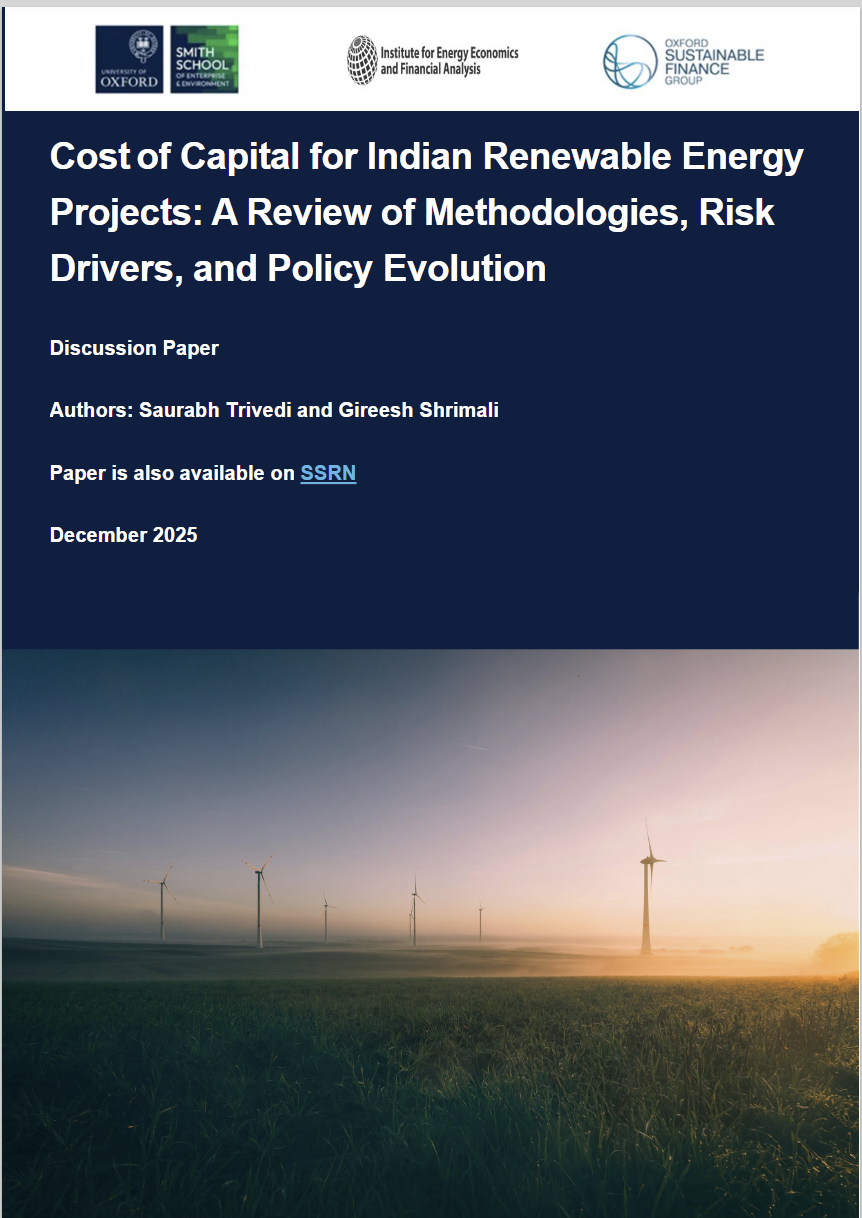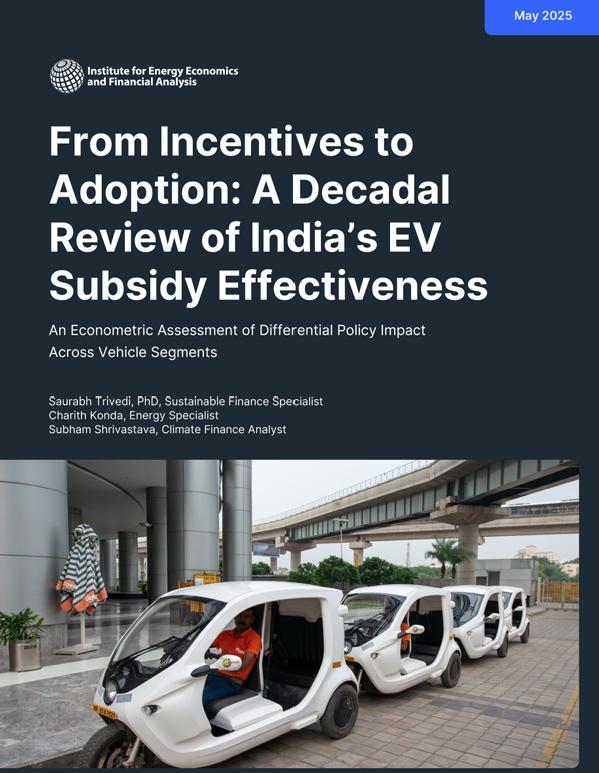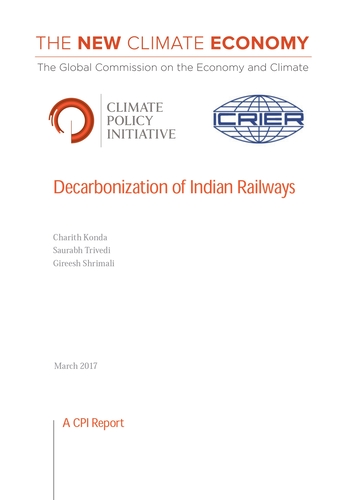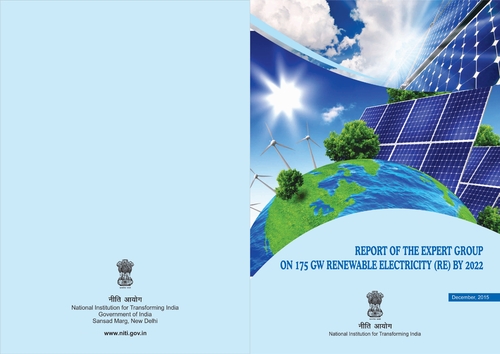-
Cost of Capital for Indian Renewable Energy Projects: A Review of Methodologies, Risk Drivers, and Policy Evolution
India’s renewable energy sector faces financing challenges that could undermine its 2030 targets, prompting this review of cost of capital dynamics across utility-scale solar and wind projects to address gaps in understanding how financing costs evolve with market maturation and policy intervention. We synthesize evidence from six estimation methodologies, analyse risk drivers through four comprehensive […]
-
From incentives to adoption: A decadal review of India’s EV subsidy effectiveness
India has committed to reducing its GDP emissions intensity by 45% by 2030 and achieving net zero by 2070, with the transportation sector being critical for decarbonization as it accounts for approximately 14% of the country’s energy sector carbon dioxide emissions. To drive this transformation, India has implemented comprehensive electric vehicle (EV) policies including purchase […]
-
Decarbonization of Indian Railways
This report analyzes pathways for decarbonizing Indian Railways (IR), the world’s second largest railway network and India’s largest electricity consumer. The study finds that complete decarbonization through a mix of solar and wind power would be 17-32% cheaper for traction operations and 40-61% cheaper for non-traction operations compared to business-as-usual by 2030. The authors recommend […]
-
Report of the Expert Group on 175 GW Renewable Electricity (RE) by 2022
This report, commissioned by NITI Aayog’s Expert Group, explores the financial, policy, and regulatory measures required to achieve India’s ambitious target of 175 GW renewable energy (RE) capacity by 2022, focusing on scaling up solar, wind, small hydro, and bioenergy. It identifies challenges such as financing, grid integration, and managing RE variability, and outlines potential […]



